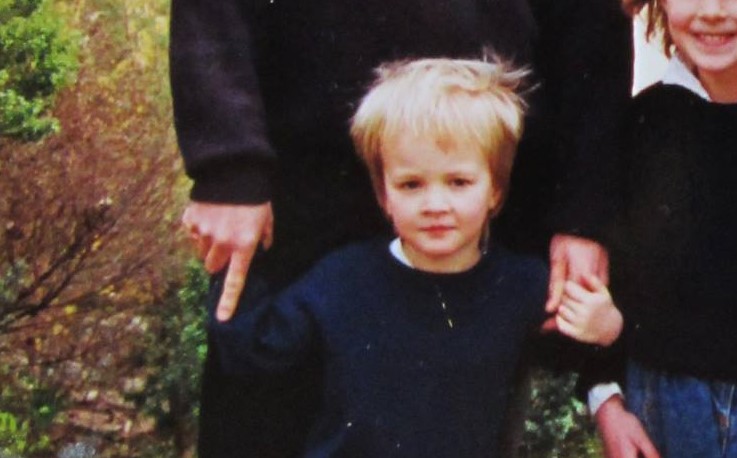ADHD and Me

One of my areas of interest as a psychologist is working with clients who have ADHD. I’ve developed a group therapy program for ADHD, and also see a lot of clients in individual therapy who have ADHD. ADHD has always been particularly interesting to me because I struggle with a lot of the issues ADHD clients have. To be clear, I’ve never received a formal ADHD diagnosis. That being said, I’ve had issues with what we call “executive functioning” all my life. This is a summary of what ADHD-like issues I’ve struggled with, how I’ve dealt with them, and how I work with clients that have ADHD.
The ADHD Related issues I’ve struggled with
For as long as I can remember I’ve thought of myself as forgetful and disorganized. It’s probably the first personality trait I was aware of having. When I started school I could never keep track of my pencil case and books, and I was always coming home without some piece of clothing. My teachers started calling me the “absent minded professor” and the nickname stuck throughout primary school. I remember a teacher throwing his own pen at me in frustration after I spent five minutes fruitlessly searching my bag for something to write with that wasn’t a red texta.
For me, this all felt really normal, the fact that other kids didn’t lose things was the mistifying thing. What do you mean I’m meant to still have that pencil case you gave me this morning? Wasn’t that hours ago? Objects seemed to exist in a somewhat chaotic orbit around me. They’d come into my life for a while, then disappear just as suddenly, without me seeming to have any control over it.
It wasn’t as if I didn’t want to be organized either. At the start of every school year I was transfixed by the clean and sleek new exercise books and folders we were given. I’d have this resolution that this year it would be different. This year I’d write my name on the front of all my books, fill out the timetable in my diary, and use those coloured tabs in my folder to keep track of my different subjects. There was something about the idea of being organized I found immensely appealing. Within weeks though my locker would be such a mess just opening the door would cause a mini avalanche, all my schoolwork would be crammed into one half ripped plastic sleeve, and I’d have lost most of my textbooks.
While my issues with attention aren’t as bad, I’ve always found my ability to focus is unreliable. I often feel like I’m surfing waves of my own arousal levels. Sometimes I’m too listless to do anything, but at other times I’m too revved up to sit still. There’s a happy medium where I’m alert enough to work but not so energetic that I can’t focus, but I can’t access this state reliably. When it does come I have to make the most of it, and even after all these years I still seem to spend a lot of time desperately trying to will it into existence. This can make my work schedule look pretty chaotic. By now I can generally count on myself to do the work I need to do in a given week, but I’m less sure about when exactly it will happen.
How I’ve coped
Getting by in life with these very clear impairments hasn’t been easy. It’s meant being honest about my weaknesses and working out ways to get things done in spite of them. Daydreaming about the perfectly organized locker while continuing to keep everything heaped in one pile didn’t help me. Realizing I could keep the few pieces of paper I needed while ruthlessly throwing away everything else was helpful though. A lot of this I figured out by myself, but after becoming a psychologist and reading more about ADHD I’ve started implementing strategies recommended from ADHD treatment manuals. Things like keeping daily to-do lists, breaking down tasks, and changing my work setting have helped me a lot.
Despite what some ADHD treatment manuals say though, I don’t think there’s any one way to manage your ADHD symptoms. I’ve met too many high functioning people with ADHD who have idiosyncratic ways of doing things to believe that. What they have in common though is an openness to trying new things, and an acceptance that what works for them is going to look different from other people. If someone with ADHD decides that they’re going to try and force themselves to work like everyone else they probably will find things hard. If, however, they realize they’ve got their own strengths and weaknesses, and are happy to experiment until they find whatever system allows them to get what they need done, things will be easier.
How I approach therapy for people with ADHD
One of my main goals of therapy in people with ADHD is helping them develop their own ways of adapting to their strengths and weaknesses. I explore what they are struggling with, then help them develop techniques and systems to help in those areas. Sometimes those techniques and systems will be based on the evidence from ADHD treatment literature, but other times they will be more unique solutions that the client has to develop themselves. What’s important is that the things we come up with suit them, and that they can stick to them consistently.
This isn’t to say all of therapy for people with ADHD is just focused on helping them be more productive. Like everyone else, people with ADHD can struggle with finding meaning and fulfillment, relating to other people, depression and anxiety. ADHD may play a role in these issues as well, but just knowing their diagnosis isn’t enough to understand them. That means we usually have to do the same work and exploration that I do as a psychologist with all my clients.